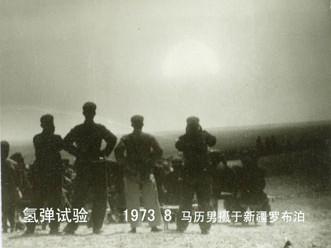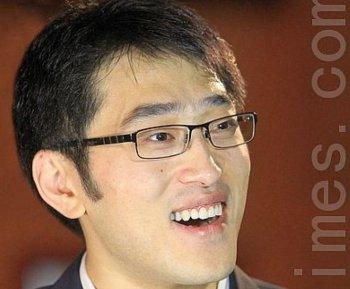An elderly Chinese-Australian man from Melbourne, who gave his name as Jack, talked with The Epoch Times about his decision to quit the Young Pioneers, an affiliated youth organization of the Chinese Communist Party (CCP).
“It is necessary to quit the CCP. It reveals our position towards it, and how we perceive it. Now over 100 million people have quit the CCP and the affiliated communist Youth League and the Young Pioneers. It is a great thing, a great trend! Quitting these organizations has removed the mark of the beast from my body, and lifted my spirit,” Jack said.
Jack was born shortly before the CCP took over power in 1949. His family was in one of the groups that were marked and discriminated against by the regime, and this gave him firsthand experience of the CCP’s nature. But it was only after he read the Nine Commentaries on the Communist Party, an editorial published in 2004 by The Epoch Times, that he gained a thorough understanding of the CCP and decided to quit the Young Pioneers.
Jack said people of his age experienced all the political campaigns the CCP launched after it took power. He was very young during the “anti-rightist” movement and didn’t understand much about it. But after he grew up, especially after he emmigrated to Australia, he got to know the details of that campaign, the tragic fate of many rightists, including the secret execution of Lin Zhao, a young student at Peking University.
“As for the Cultural Revolution, I remember it clearly. It lasted ten years, when I was between 18 and 28 years old. It was so brutal, it is hard to forget. It always grieves me when I think about it,” Jack said.
Jack’s father died during the latter phase of the Cultural Revolution. He was a management cadre in a factory, and was denounced and assigned to hard labor in a workshop that was one of the harshest and most dangerous places in the factory. Jack’s father died as a result of an accident in the factory.
“It was a huge blow to our family. When the political campaign was finally winding down, our family asked the factory leadership to compensate cases like my father’s. But no one cared to pay any attention,” he said.
“The Cultural Revolution was terrible. It was lawless. Beatings took place in broad daylight in the streets. I saw people lying on the railroad tracks to end their lives. A schoolmate of mine took his life by lying on railroad tracks. It was so gruesome, so sad.”
After the Cultural Revolution, life did not turn out to be what Jack had hoped for either.
“I was in Beijing on June 4, 1989, he recalled. “I cared greatly about the student protests, and I started to see through the CCP on June 4. It smashed all the expectation I had developed after the Cultural Revolution. I was very shocked. They called out tanks for the crackdown. I witnessed the atrocities.”
Jack said he was also in Beijing when the CCP moved to suppress Falun Gong ten years later, in 1999.
“I think Falun Gong has been a wonderful group of cultivators. Back then many people were doing the Falun Gong exercises on sidewalks or in parks. I saw them on my way to work. They had a banner next to them, which read: ‘Falun Dafa--Exercises Taught Free of Charge.’ I was quite impressed.”
Jack said when the crackdown on Falun Gong started, he did not agree.
“I thought the CCP was resorting to struggle campaigns again, like in the Cultural Revolution.”
Jack said he has no illusions about the CCP.
“We all know it is going to collapse sooner or later. There is no doubt about it; it’s just a matter of time. Even the CCP itself knows this. I think most Communist Party members are aware of this as well. Why have so many high-ranking Party officials’ families emigrated overseas? Isn’t it clear that its days are coming to an end? If it were still in good shape, why would they emigrate overseas?”


